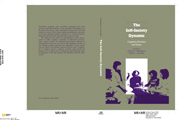Book contents
- Frontmatter
- Contents
- Contributors
- Preface and acknowledgments
- Introduction: The self–society dynamic
- 1 Exploring the relevance of social cognition for the relationship of self and society: Linking the cognitive perspective and identity theory
- 2 Toward a sociology of cognition
- 3 The cerebral self: Thinking and planning about identity-relevant activity
- 4 Growing up: The development and acquisition of social knowledge
- 5 The social contexts of self-feeling
- 6 Self-processes and emotional experiences
- 7 An affect control view of cognition and emotion
- 8 The self-concept as a basis for a theory of motivation
- 9 Attitudes, behavior, and the self
- 10 From changing selves toward changing society
- 11 Possible selves and social support: Social cognitive resources for coping and striving
- 12 Is the road to helping paved with good intentions? Or inertia?
- 13 Social structure and the moral self
- 14 The production of selves in personal relationships
- 15 Conclusion
- Indexes
Introduction: The self–society dynamic
Published online by Cambridge University Press: 23 September 2009
- Frontmatter
- Contents
- Contributors
- Preface and acknowledgments
- Introduction: The self–society dynamic
- 1 Exploring the relevance of social cognition for the relationship of self and society: Linking the cognitive perspective and identity theory
- 2 Toward a sociology of cognition
- 3 The cerebral self: Thinking and planning about identity-relevant activity
- 4 Growing up: The development and acquisition of social knowledge
- 5 The social contexts of self-feeling
- 6 Self-processes and emotional experiences
- 7 An affect control view of cognition and emotion
- 8 The self-concept as a basis for a theory of motivation
- 9 Attitudes, behavior, and the self
- 10 From changing selves toward changing society
- 11 Possible selves and social support: Social cognitive resources for coping and striving
- 12 Is the road to helping paved with good intentions? Or inertia?
- 13 Social structure and the moral self
- 14 The production of selves in personal relationships
- 15 Conclusion
- Indexes
Summary
The participants of the conference out of which this volume grew were asked to address how theories of social cognition, a perspective that dominates contemporary psychological social psychology, might inform the relationship between self and society. Thus in one sense this book is an update of the “two social psychologies” (or three, House, 1977) literature (Stryker, 1977; Cartwright, 1979) Stryker reviews briefly in chapter 1. This literature contends that there are substantial costs associated with the prevailing mutual ignorance among the three branches of social psychology – psychological, sociological, and personality and social structure. This volume is one attempt to redress this ignorance.
The book is organized into three sections. The first section includes four chapters that address the general interface between sociological theories of the self and theories of social cognition. The second section presents four chapters that address affective and motivational links with cognition, and the third section includes six chapters that illustrate links between the self and cognition as manifested in different forms of behavior. The organization of the volume as a whole thus echos a theme that emerges in a striking number of the individual contributions, that is, reference to the tripartite division of behavior, cognition, and affect.
Over the course of the twentieth century, social psychology has revolved around these three poles of behavior, cognition, and affect.
- Type
- Chapter
- Information
- The Self-Society DynamicCognition, Emotion and Action, pp. 1 - 18Publisher: Cambridge University PressPrint publication year: 1991
- 2
- Cited by



